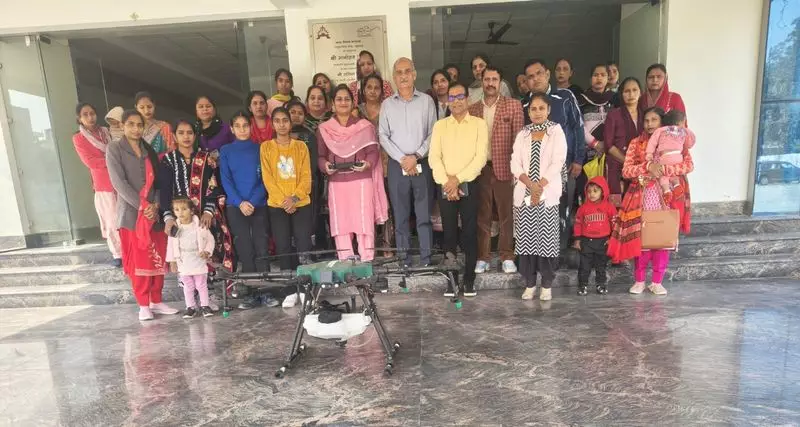
In a groundbreaking move that promises to reshape India's agricultural landscape, Prime Minister Narendra Modi has launched the ambitious Drone Didi project. This innovative scheme aims to equip 15,000 women across the country with agricultural drones, transforming them from traditional farmers into technology-savvy entrepreneurs.
Empowering Women Through Agricultural Technology
The Drone Didi initiative represents a significant step toward modernizing Indian agriculture while simultaneously promoting women's empowerment. Under this program, women from 15,000 self-help groups will receive comprehensive training in operating and maintaining agricultural drones. These women will become the backbone of rural technological advancement, providing drone services to fellow farmers in their communities.
The project was officially announced by Prime Minister Modi during a recent event, highlighting the government's commitment to integrating cutting-edge technology into traditional farming practices. By placing advanced drone technology in the hands of rural women, the scheme addresses two critical challenges: agricultural modernization and gender empowerment in rural economies.
How Drone Didi Will Transform Farming Practices
Agricultural drones bring multiple benefits to farming operations that can significantly improve productivity and sustainability. These unmanned aerial vehicles will be deployed for various agricultural applications, revolutionizing how farmers manage their crops and resources.
The primary applications include spraying liquid fertilizers, pesticides, and seeds with unprecedented precision. Unlike traditional methods that require manual labor and often lead to uneven application, drones can cover large areas quickly while ensuring uniform distribution. This precision agriculture approach minimizes chemical wastage, reduces environmental impact, and optimizes resource utilization.
Additionally, these drones will play a crucial role in crop monitoring and assessment. They can capture high-resolution images and data that help farmers identify problem areas, monitor crop health, and make informed decisions about irrigation and nutrient management. This data-driven approach enables early detection of pests, diseases, or nutrient deficiencies, allowing for timely intervention and potentially saving entire crops from damage.
The Ripple Effect: Economic and Social Impact
The Drone Didi project extends beyond technological implementation to create substantial economic and social benefits across rural India. By training women as drone operators, the scheme opens up new entrepreneurial opportunities and income sources for rural families.
Women participating in the program will be able to offer drone services to other farmers in their vicinity, creating sustainable business models while contributing to agricultural modernization in their communities. This not only generates additional income for these women but also positions them as technology leaders in traditionally male-dominated sectors.
The economic impact extends to the broader farming community as well. Farmers utilizing drone services can expect significant cost savings through reduced labor requirements and optimized input usage. More efficient application of fertilizers and pesticides means lower chemical costs, while improved crop monitoring can lead to better yields and higher quality produce.
From a social perspective, the project challenges gender stereotypes in both agriculture and technology sectors. It demonstrates that rural women can not only adapt to advanced technology but can become proficient operators and entrepreneurs in this emerging field. This empowerment has the potential to transform social dynamics in rural communities and inspire younger generations of women to pursue careers in technology-driven agriculture.
The Drone Didi project represents a perfect convergence of technological innovation, agricultural reform, and women's empowerment. As these 15,000 women take to the skies with their drones, they're not just spraying crops—they're sowing the seeds of a agricultural revolution that could redefine farming in India for generations to come.




